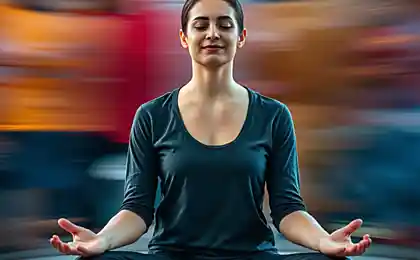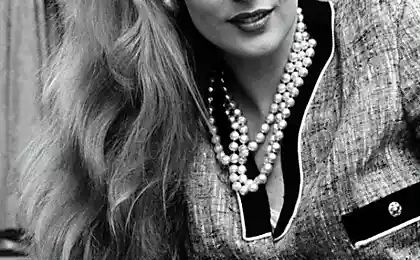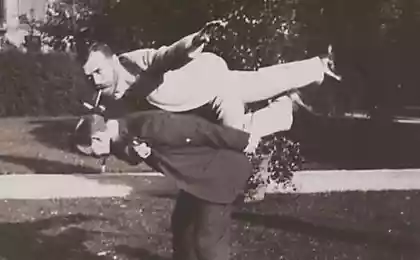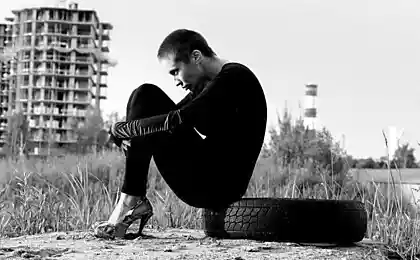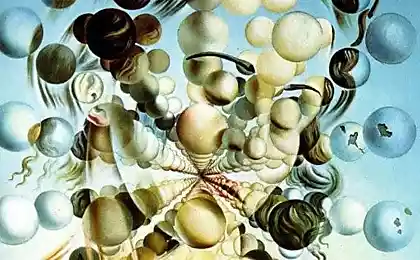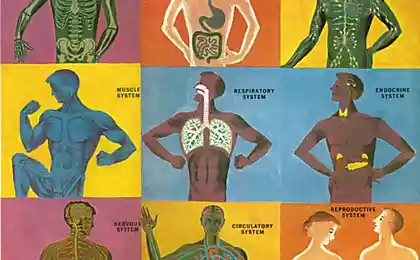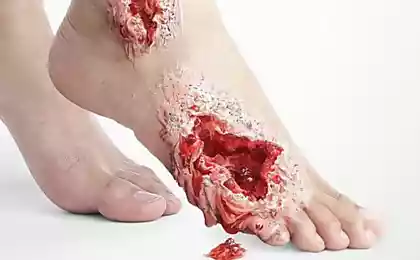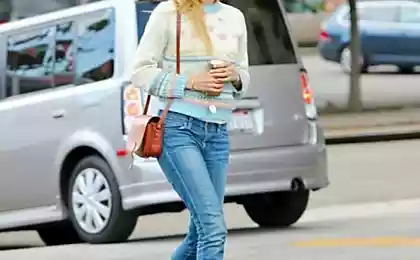478
"Fight or flight, eat or sleep" — HOW does our body
Initially, our body is "designed" for physical activity, and mental and emotional sphere were intended only to ensure the adequacy of this activity. Historically, however, recently the situation has changed fundamentally – physical activity has decreased, but mental and emotional stress, on the contrary, increased – and in fact the organism which was, and remained so, including remain subject to the arrangements developed and honed long before the appearance of man himself.
No significant differences in the practical physical, emotional and theoretical experience of mental alertness for the body not to respond you still have the same as potentially physical.
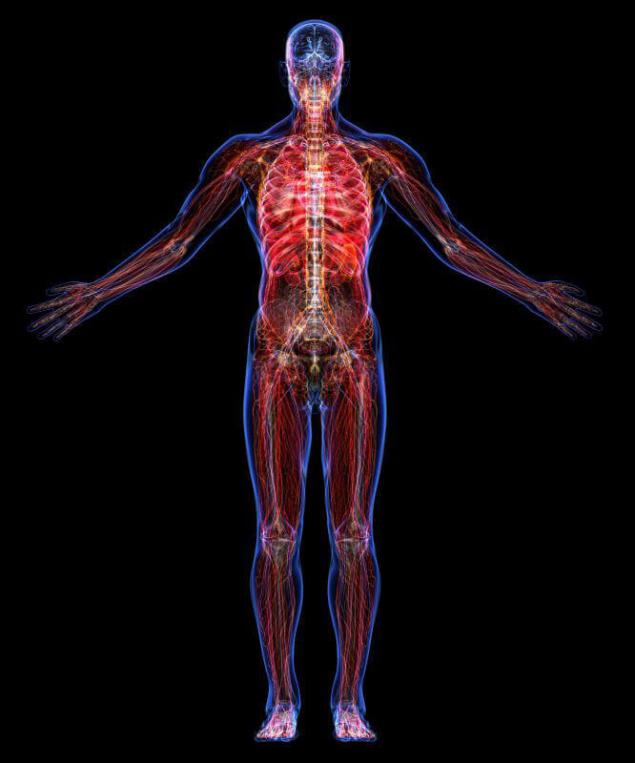
Regulated by our body as a unified system, from the conscious to deeper unconscious "automatic" levels. With a certain level of regulation diverges three branches – the nervous, endocrine, immune, and each branch is engaged in and in their own way, but still complementing and correcting each other in a common bond while achieving your goals.
All reactions of an organism can be roughly distributed in 2 complementary complex – States of action and rest. In a state of action – "fight or flight" – a normal living person:
• aktiviziruyutsya cardiovascular and respiratory system – to meet growing needs of the body to improve blood flow and gas exchange: - increased blood pressure
- quickens the heartbeat, increasing cardiac output
- more frequent respiratory movements, breathing increases lung volume
•aktiviziruyutsya the motor system, with an increase in its excitability and tension:
— the muscles of the head, neck and back – prone to "armored, corset" voltage for protection against external damage
the muscles of the limbs – adapted for the rapid fine movements, until miscoupling shiver
— muscles in the eyelids provide a protective marginalnye extremely fast movement, until the twitching of individual muscle fibers
— General muscle tremors – as a direct implementation of flightiness or to increase heat production
musculoskeletal readiness challenges "to sit in one place", the need to walk and to perform other rhythmic movements
• aktiviziruyutsya emotional sphere – the basic emotions are not trivial decorations, and the vital stimulus, run, and provide certain required complex reactions:
— anxiety – emotion "nastraivaniya, low start", it is pointless to mobilize, increases the sensitivity of perception and speed of response, provides search reaction
- fear – emotion "avoid, escape", specific to protect against specific risk, the basis of most fears, anyway, is the fear of death + disgust – the emotion "disgust, rejection" — a derivative of fear, focused on the avoidance of toxic and infectious factors, also applies to the moral-social sphere
- anger – emotion "fight, fight", provides aggressive proactive survival, state of rage
• slows down the digestive and reproductive system – because the "not up to it, you need to save a life":
— diminished appetite, occurs constipation, reduced weight
- reduced libido, inhibited menstrual cycle and fertility
• is endocrine support activity:
— increases glucose in blood – for food, particularly nerve cells
effects of adrenaline, noradrenaline, cortisol and other hormones
• there may be additional situational reactions:
— General perspiration and redness of the skin to improve heat transfer by increasing heat production, to facilitate slipping "from the clutches of the enemy"
— perspiration of the palms and soles – protective reaction that has survived from the waged arboreal primates, in the event of an emergency, improving the grip of prehensile limbs with a branch
- laughter, crying, shouting, trembling reaction "discharge" – natural mechanisms for the relief of mental and physical stress
+ itching – close response, to actively defuse the tension, irritating the skin by scratching, such a mechanism can detect when a harm is the ability to facilitate the "internal" emotional pain "external" physical
— vomiting, profuse diarrhea, urination – response of "unloading" – getting rid of aggravating, unacceptable, poisonous content
— a rise in body temperature – to increase the flow rate of biochemical reactions, worsening conditions of life for disease-causing agents, the launch of a number of immune defense reactions
The rest – "eat or sleep" – is conventionally provided by the opposite set of reactions:
• aktiviziruyutsya digestive system is to digest food in calm conditions: increases appetite, increases weight
- accelerated motility and facilitates emptying of hollow organs, including defecation and urination
• slow down the cardiovascular and respiratory system – it is possible to save and restore the resource, and also reduce the amount of possible blood loss: - decreased blood pressure
— slows heartbeat, decreases the amount of cardiac output
- urejaut respiratory movements, reduced respiratory lung volume
• braked motor system, with a decrease in its excitability and tension:
— the General weakness to weakness
— slowness and lack of coordination of movements, including unsteady gait
• corresponding changes in emotional-motivational sphere:
- the desire of rest, relaxation, laziness, lethargy, fatigue, drowsiness
— zadavanie – reaction "paralysis, numbness" masks "the area" immobility in case of danger in case of impossibility of effective fight or flight
+ imaginary death – extreme reaction tatiania, "if you can't fight danger or flee, you can pretend to be dead, you see, will not eat" – is a different kind of loss of consciousness, primarily fainting
— surrender – response "submission, humility", ensures the survival of social animals in the case ginepraia aggression with other dogs
• additional situational reactions:
— pallor and cold skin, especially of hands and feet due to blood flow restriction – to reduce the heat or the amount of possible blood loss
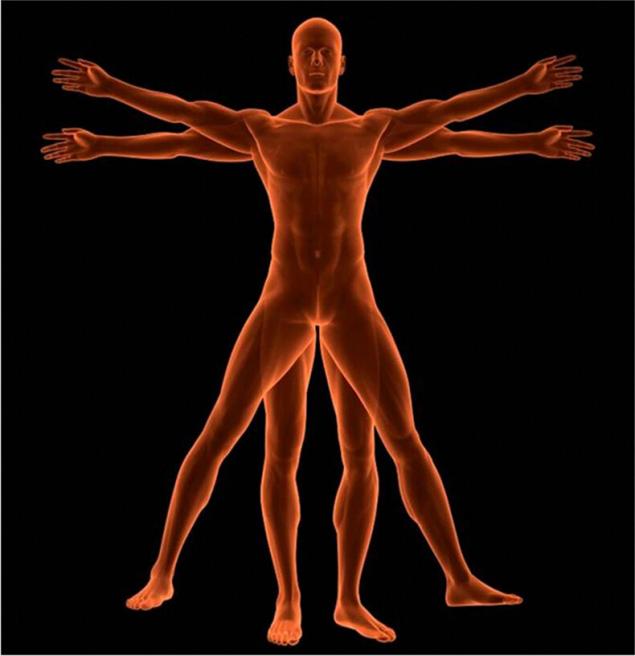
Thus, a fair amount of issues that some people come to the doctor are not painful, and normal included in the basic set of adaptive reactions. In many cases they require no treatment, but only the correction of lifestyle and appropriate treatment, including decisions of those moments that force the body to react in this way.
Any similar or other painful conditions are: — a result — a direct result of external impact damage or depletion
— signal/demonstration
a corrector of behavior — motivation or constraint
- others — social tool — assistance
— reaction
- adaptation and protection
- discharge, at least some implementation
In the framework of the incident has long been renaming the "neurologists" in "neurology", reflecting the knowledge and ability to see an expert not only pathology, but the features of the normal functioning of the body – the diagnosis of type vegeto-vascular dystonia, psycho-vegetative dysfunction and the like, implying the presence of "chronic diseases", are increasingly losing relevance.
Fascia — the "secret" on your body
MAGIC enzymes — You should know this!
Numerous excess survey does not reveal significant deviations can further amplify the alarm for their own health – but keep in mind that "no news is news", and grabs a benign regulatory, not physical "technical" reasons for the malaise. published
Author: Alexander Wanigasooriya
Source: phalaris.livejournal.com/4927.html
No significant differences in the practical physical, emotional and theoretical experience of mental alertness for the body not to respond you still have the same as potentially physical.

Regulated by our body as a unified system, from the conscious to deeper unconscious "automatic" levels. With a certain level of regulation diverges three branches – the nervous, endocrine, immune, and each branch is engaged in and in their own way, but still complementing and correcting each other in a common bond while achieving your goals.
All reactions of an organism can be roughly distributed in 2 complementary complex – States of action and rest. In a state of action – "fight or flight" – a normal living person:
• aktiviziruyutsya cardiovascular and respiratory system – to meet growing needs of the body to improve blood flow and gas exchange: - increased blood pressure
- quickens the heartbeat, increasing cardiac output
- more frequent respiratory movements, breathing increases lung volume
•aktiviziruyutsya the motor system, with an increase in its excitability and tension:
— the muscles of the head, neck and back – prone to "armored, corset" voltage for protection against external damage
the muscles of the limbs – adapted for the rapid fine movements, until miscoupling shiver
— muscles in the eyelids provide a protective marginalnye extremely fast movement, until the twitching of individual muscle fibers
— General muscle tremors – as a direct implementation of flightiness or to increase heat production
musculoskeletal readiness challenges "to sit in one place", the need to walk and to perform other rhythmic movements
• aktiviziruyutsya emotional sphere – the basic emotions are not trivial decorations, and the vital stimulus, run, and provide certain required complex reactions:
— anxiety – emotion "nastraivaniya, low start", it is pointless to mobilize, increases the sensitivity of perception and speed of response, provides search reaction
- fear – emotion "avoid, escape", specific to protect against specific risk, the basis of most fears, anyway, is the fear of death + disgust – the emotion "disgust, rejection" — a derivative of fear, focused on the avoidance of toxic and infectious factors, also applies to the moral-social sphere
- anger – emotion "fight, fight", provides aggressive proactive survival, state of rage
• slows down the digestive and reproductive system – because the "not up to it, you need to save a life":
— diminished appetite, occurs constipation, reduced weight
- reduced libido, inhibited menstrual cycle and fertility
• is endocrine support activity:
— increases glucose in blood – for food, particularly nerve cells
effects of adrenaline, noradrenaline, cortisol and other hormones
• there may be additional situational reactions:
— General perspiration and redness of the skin to improve heat transfer by increasing heat production, to facilitate slipping "from the clutches of the enemy"
— perspiration of the palms and soles – protective reaction that has survived from the waged arboreal primates, in the event of an emergency, improving the grip of prehensile limbs with a branch
- laughter, crying, shouting, trembling reaction "discharge" – natural mechanisms for the relief of mental and physical stress
+ itching – close response, to actively defuse the tension, irritating the skin by scratching, such a mechanism can detect when a harm is the ability to facilitate the "internal" emotional pain "external" physical
— vomiting, profuse diarrhea, urination – response of "unloading" – getting rid of aggravating, unacceptable, poisonous content
— a rise in body temperature – to increase the flow rate of biochemical reactions, worsening conditions of life for disease-causing agents, the launch of a number of immune defense reactions
The rest – "eat or sleep" – is conventionally provided by the opposite set of reactions:
• aktiviziruyutsya digestive system is to digest food in calm conditions: increases appetite, increases weight
- accelerated motility and facilitates emptying of hollow organs, including defecation and urination
• slow down the cardiovascular and respiratory system – it is possible to save and restore the resource, and also reduce the amount of possible blood loss: - decreased blood pressure
— slows heartbeat, decreases the amount of cardiac output
- urejaut respiratory movements, reduced respiratory lung volume
• braked motor system, with a decrease in its excitability and tension:
— the General weakness to weakness
— slowness and lack of coordination of movements, including unsteady gait
• corresponding changes in emotional-motivational sphere:
- the desire of rest, relaxation, laziness, lethargy, fatigue, drowsiness
— zadavanie – reaction "paralysis, numbness" masks "the area" immobility in case of danger in case of impossibility of effective fight or flight
+ imaginary death – extreme reaction tatiania, "if you can't fight danger or flee, you can pretend to be dead, you see, will not eat" – is a different kind of loss of consciousness, primarily fainting
— surrender – response "submission, humility", ensures the survival of social animals in the case ginepraia aggression with other dogs
• additional situational reactions:
— pallor and cold skin, especially of hands and feet due to blood flow restriction – to reduce the heat or the amount of possible blood loss

Thus, a fair amount of issues that some people come to the doctor are not painful, and normal included in the basic set of adaptive reactions. In many cases they require no treatment, but only the correction of lifestyle and appropriate treatment, including decisions of those moments that force the body to react in this way.
Any similar or other painful conditions are: — a result — a direct result of external impact damage or depletion
— signal/demonstration
a corrector of behavior — motivation or constraint
- others — social tool — assistance
— reaction
- adaptation and protection
- discharge, at least some implementation
In the framework of the incident has long been renaming the "neurologists" in "neurology", reflecting the knowledge and ability to see an expert not only pathology, but the features of the normal functioning of the body – the diagnosis of type vegeto-vascular dystonia, psycho-vegetative dysfunction and the like, implying the presence of "chronic diseases", are increasingly losing relevance.
Fascia — the "secret" on your body
MAGIC enzymes — You should know this!
Numerous excess survey does not reveal significant deviations can further amplify the alarm for their own health – but keep in mind that "no news is news", and grabs a benign regulatory, not physical "technical" reasons for the malaise. published
Author: Alexander Wanigasooriya
Source: phalaris.livejournal.com/4927.html
Man. Access code: Needs. Adopted. Free.
IMPORTANT information for parents! Many symptoms, one disease



